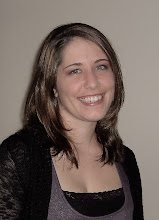.jpg)
See that left brain working away? Being logical, serious and business-like? Then there's the right brain playing, relaxing, being creative. Writing uses both sides, but mostly the right. Sure the left side has to remind you that the comma goes before the conjunction, and the period goes inside the quotation marks, but for the most part that side goes into autopilot and lets the right side do its thing. At least that's how it works for this writer. But, there comes a time when you have to allow only the left side to work on your book, and that's where I've been for the last few days.
But this has been great! My left brain found things my right brain missed. For instance, upon re-reading the submission requirements for my target agent, I found that he doesn't actually specify a 1-2 page synopsis. The exact word he uses is "brief." Well my synopsis comes out at just over 3 pages (double spaced) and I think that is brief.
I'll no doubt be dedicating an entire blog (maybe 2) to the subject of synopses, but let me just say, "It ain't easy squeezing 420 pages into 3." And, "It's darn near impossible making those 3 pages sound interesting." Which is why I am so glad the agent I'm shooting for also asks for a sample chapter. In this case, I'll be giving him my Prologue. It's only five pages, but I feel like it is a great example of my writing style and one of the most interesting chapters in the book. I might be taking a chance by sending it to him because it doesn't reveal any of the plot, but the synopsis (however boring) should cover that.
So my query package includes the query letter, the BRIEF synopsis, and my prologue. Doesn't sound like much, but... I don't even feel the need to finish that sentence because this stage in the process has been harder than writing the novel itself. Anyway, I revised the prologue one more time while I had the left brain here and there were a few minor changes, but nothing huge or noticeable really.
One thing I've learned from all of this is that you can edit the book 100 times and when you pick it up for revision number 101, you're still going to find something to change. That's because of 2 main reasons. The first is that you are learning and growing in your writing everyday whether you realize it or not. Your subconscious is secretly picking up all kinds of great things which makes you a better writer.
The second reason is that you start playing the semantics game with yourself. You start to wonder if a better word could be used in this sentence, or if you should flip the order of that sentence. Usually your first instinct about words is the way to go, but sometimes this little game can be helpful. It can also be destructive though, so be careful. You might tear your book to pieces and end up worse off than you were before. You just have to find the right balance.
Think about this: if you spend all your time editing, when are you going to write the next book? Look at what we'd be missing out on if Anne Rice, Stephen King, and Dean Koontz were all still at their desks editing their first book. That's what editors are for. Revising is a very important step in the writing process, but it comes down to finding the right balance.


